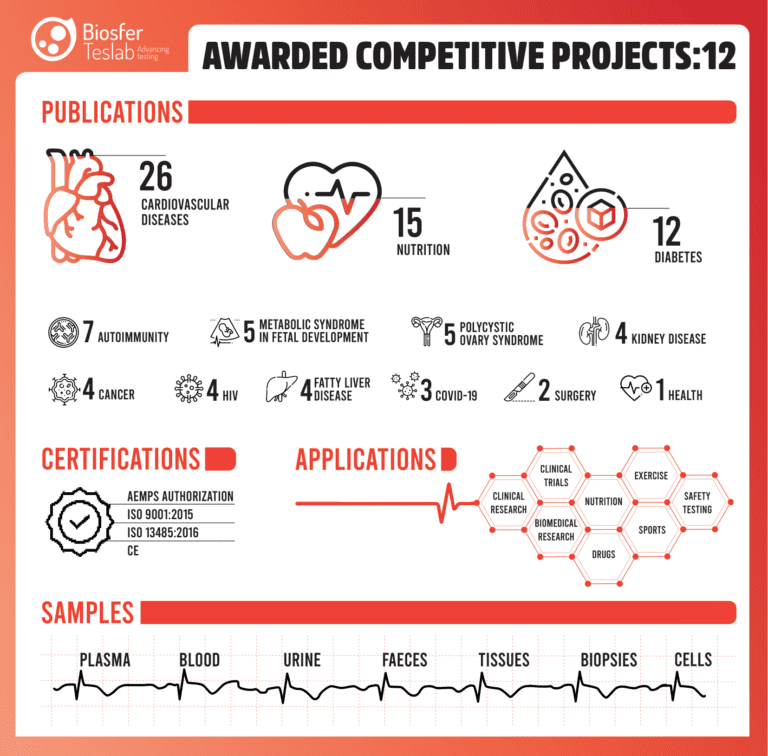Normal 0 21 false false false ES X-NONE X-NONE /* Style Definitions */ table.MsoNormalTable {mso-style-name:"Tabla normal"; mso-tstyle-rowband-size:0; mso-tstyle-colband-size:0; mso-style-noshow:yes; mso-style-priority:99; mso-style-parent:""; mso-padding-alt:0in 5.4pt 0in 5.4pt; mso-para-margin-top:0in; mso-para-margin-right:0in; mso-para-margin-bottom:8.0pt; mso-para-margin-left:0in; line-height:107%; mso-pagination:widow-orphan; font-size:11.0pt; font-family:"Calibri",sans-serif; mso-ascii-font-family:Calibri; mso-ascii-theme-font:minor-latin; mso-hansi-font-family:Calibri; mso-hansi-theme-font:minor-latin; mso-fareast-language:EN-US;} Metabolomics: Personalised precision medicine is here
With omics technologies we can obtain a more objective and complete view of the molecular changes occurring during patient clinical evolution.
Think of the HEART. Did you know that it beats over an average lifetime more than 3 billion times?
It is the most metabolically demanding organ in the body and needs a constant supply of energy. It is precisely for this reason that disorders in cardiac energy metabolism are the basis of most cardiovascular diseases.
Similarly, diseases such as diabetes, which causes systemic alterations in metabolism, directly affect the cardiovascular system.
RESULT: These variations in systemic and cardiac metabolism form a vicious circle that causes and chronicles cardiovascular diseases.
In this context it does NOT make sense:
- A single biomarker approach;
- Assuming all patients share a similar phenotype;
- Assuming all patients will respond in the same way to a particular therapy.
The molecular processes closest to disease states are best identified through metabolomics, which provides a functional integration of Genomic, Transcriptomic and Proteomic variation, as well as environmental factors such as diet, microbiota variation or physical activity.
By studying the METABOLOME we can obtain important information about the pathogenesis of cardiovascular diseases and assess their risk, in addition to offering the potential to identify new clinically relevant biomarkers. At Biosfer Teslab S.L we characterise the profile of lipoproteins and/or plasmatic glycoproteins using NMR.
Using our Liposcale® test we can evaluate the advanced lipoprotein profile of each patient in a complete and personalised way and the identification of glycoproteins can serve as potential markers of the degree of associated inflammation, and can be complementary to the measurement of C-reactive protein traditionally used as a marker of inflammation.
Our mission at Biosfer Teslab S.L is to advance the knowledge in cardiovascular diseases and its translation into a direct improvement in people’s health and quality of life.
We support health professionals by providing analytical services to study and monitor metabolic alterations with the aim of improving cardiovascular risk control through a global NMR metabolomic profile.
Do you want save people’s life through Metabolomics?



